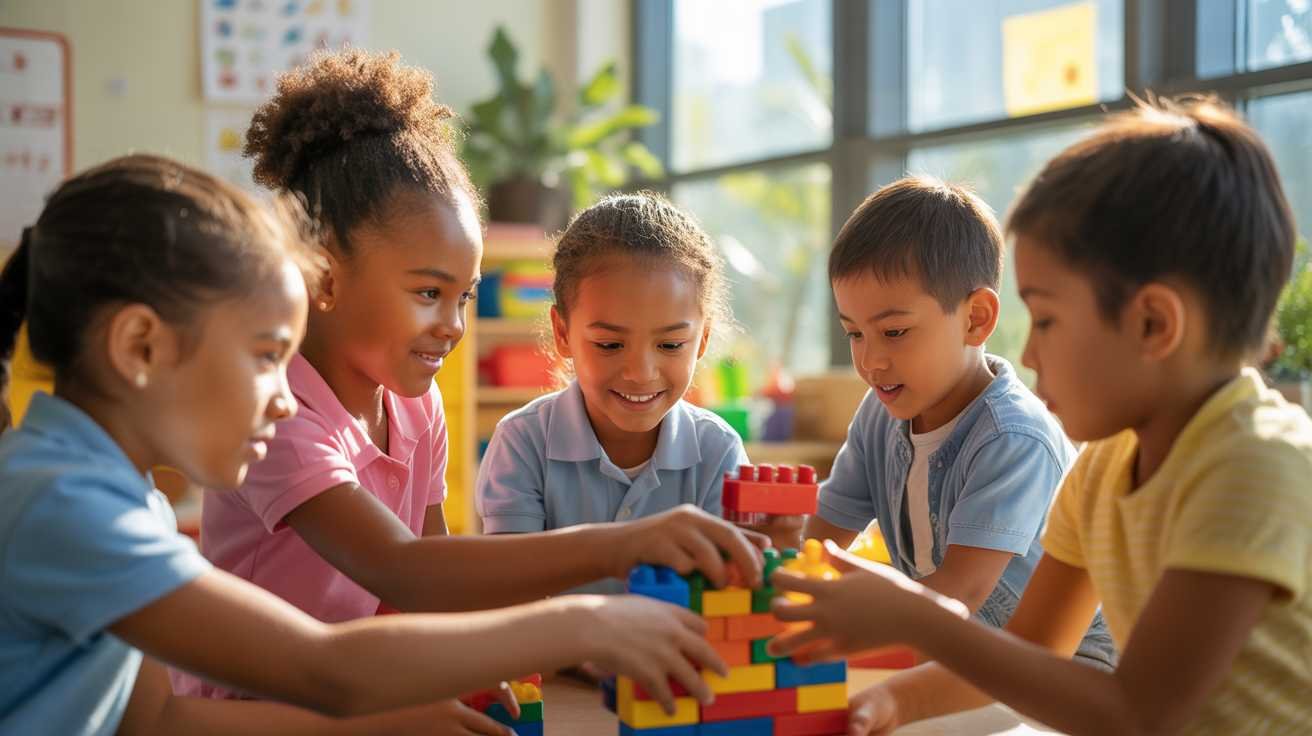The Urgent Need to Build Emotional Strength in Today’s Children
In a world spinning faster every day, where information floods our children’s minds and social pressures grow heavier than ever, emotional resilience has become the cornerstone of survival. The ability to bounce back from disappointment, to find courage when the world feels overwhelming, is no longer optional – it’s essential. As parents, educators, and mentors, the time to act is now. Every moment we delay teaching our children how to manage their emotions and build inner strength is a moment they could fall prey to stress, anxiety, or self-doubt. Schools and families around the world are turning to transformative digital tools and training programs, such as the nearpod certified educator initiative, which equips teachers with innovative strategies to engage, inspire, and emotionally empower their students. Emotional resilience doesn’t develop by chance – it’s cultivated through intentional experiences, structured guidance, and consistent reinforcement. The urgency to build emotionally strong children has never been greater. When they learn to navigate challenges with calm confidence, they not only achieve more academically but also thrive in life’s unpredictable storms. Those who master this art early stand out as leaders, innovators, and changemakers. Every missed opportunity to nurture resilience today is a setback for tomorrow’s success.
Creating a Safe Emotional Environment at Home and School
Children thrive where they feel seen, heard, and understood. A safe emotional environment is the fertile ground from which resilience blossoms. At home, this begins with open conversations, unconditional love, and active listening. Parents must create a climate where feelings are validated rather than dismissed, where mistakes are viewed as learning experiences, not failures. When a child can share a fear or disappointment without judgment, their emotional muscles strengthen. In classrooms, educators trained under the nearpod certified educator framework bring these principles to life through interactive lessons that encourage empathy, communication, and self-expression. Imagine a learning environment where students are guided through digital storytelling, reflective prompts, and interactive collaboration that builds both emotional intelligence and academic confidence. These classrooms don’t just teach facts – they nurture humanity. The sense of belonging and psychological safety cultivated in such settings allows children to face challenges courageously. They learn to regulate emotions, express themselves authentically, and trust that their voices matter. A safe emotional environment doesn’t just protect children – it empowers them to take risks, grow, and lead without fear of failure. This foundation becomes their greatest armor in an uncertain world.
The Power of Positive Reinforcement and Growth Mindset
One of the most powerful ways to build self-esteem is through positive reinforcement and the cultivation of a growth mindset. Children absorb the energy around them; every word, tone, and expression imprints their sense of worth. When adults highlight effort over outcome, perseverance over perfection, children internalize a belief that they can grow through challenges. Programs led by nearpod certified educators are revolutionizing how feedback is delivered in classrooms. Instead of generic praise, they teach educators to provide specific, constructive encouragement that fuels self-awareness and intrinsic motivation. Picture a child who once feared math suddenly discovering joy in solving problems – not because they were told they were “smart,” but because they were guided to see how persistence transforms struggle into mastery. This shift in perspective unlocks confidence and resilience, helping children realize that failure is not final but a stepping stone toward progress. Positive reinforcement must be intentional, consistent, and genuine. Each encouraging moment compounds over time, building an unshakable sense of self that carries children through adolescence and into adulthood with courage and optimism.
Building Confidence Through Challenge and Responsibility
Children gain confidence not through protection but through purposeful challenge. Shielding them from hardship weakens their resilience; guiding them through it strengthens their spirit. When children take on responsibilities – whether managing chores, leading group projects, or making decisions about their learning – they develop ownership and self-assurance. The nearpod certified educator framework integrates challenge-based learning activities where students face real-world scenarios that test both intellect and emotion. Through interactive simulations, teamwork exercises, and reflective discussions, they learn that challenges are not obstacles to fear but opportunities to grow. Confidence blooms when children see themselves as capable of influencing outcomes through effort and determination. Parents can mirror this approach by entrusting their children with meaningful tasks at home – planning a family meal, managing a small budget, or solving practical problems. Each completed challenge reinforces a belief in their competence. Over time, they develop a quiet inner certainty that they can handle whatever life throws their way. This cultivated confidence becomes their internal compass, guiding them toward resilience, independence, and lifelong success.
Encouraging Emotional Expression and Self-Awareness
Emotional resilience begins with self-awareness – the ability to recognize, name, and regulate emotions before they spiral out of control. Encouraging children to talk about their feelings gives them tools to manage them. In classrooms led by nearpod certified educators, students are guided through mindfulness exercises, journaling prompts, and digital reflections that teach emotional vocabulary and regulation techniques. These strategies are designed to normalize emotion, not suppress it. A child who learns to say “I feel disappointed” instead of reacting impulsively is already building resilience. At home, parents can nurture this skill by modeling transparency – discussing their own feelings calmly and showing children how emotions can be processed in healthy ways. Emotional expression is not weakness; it is strength disguised in vulnerability. The world often rewards stoicism, but true power lies in emotional honesty. When children learn this balance, they grow into empathetic leaders and strong communicators. Encouraging expression creates emotional clarity, and from clarity emerges resilience. It allows children to face conflict, loss, and transition with grounded understanding and compassion – for themselves and for others.
Using Technology and Learning Platforms to Build Emotional Skills
In the digital age, technology can either distract or empower – and with the right tools, it can transform emotional learning. Platforms like Nearpod are leading this revolution by integrating emotional education into interactive lessons that captivate students’ minds and hearts. Becoming a nearpod certified educator allows teachers to unlock a wealth of resources designed to build emotional intelligence through digital storytelling, empathy-driven collaboration, and real-time engagement. These platforms turn learning into a living experience, using visual, auditory, and kinesthetic elements that resonate deeply with young minds. Children no longer just read about resilience – they experience it. For example, interactive scenarios let them make choices in simulated emotional situations, see consequences, and reflect on outcomes, creating immersive lessons in self-awareness. This fusion of technology and emotional development prepares children for modern challenges with digital literacy and emotional strength. Educators who adopt these innovative tools are not just teaching – they are shaping emotionally intelligent digital citizens ready to lead the future.
Modeling Resilience and Confidence as Adults
Children learn less from what we say and more from what we do. Modeling resilience, confidence, and composure as adults sets a living example they instinctively emulate. When parents or teachers remain calm under pressure, admit mistakes gracefully, and recover with determination, children internalize these responses. The nearpod certified educator philosophy emphasizes professional modeling – encouraging educators to display emotional balance and authenticity in every interaction. Imagine a teacher who openly discusses a setback, then demonstrates how to solve it creatively and calmly. That simple act becomes a profound life lesson for students. At home, parents can practice similar transparency by sharing personal challenges and how they navigate them. This humanizes resilience and strips away the illusion that strength means perfection. Instead, it reveals that true confidence is built on authenticity, adaptability, and persistence. Children who grow up watching resilient adults learn to face the world with courage. They understand that failure is feedback, not defeat. Modeling is the silent curriculum that shapes character more powerfully than any lecture ever could.
Integrating Play, Creativity, and Movement to Foster Self-Esteem
Play is not just recreation – it is emotional medicine. Creative play helps children express emotions, solve problems, and connect with others in joyful ways that build self-esteem. When learning becomes playful, confidence soars. Nearpod certified educators are redefining how schools approach learning by embedding creativity and movement into lesson design. Through gamified lessons, collaborative activities, and creative storytelling, students experience learning as an adventure rather than a task. This playful engagement releases dopamine, the brain’s natural motivation chemical, reinforcing a positive association with challenge and exploration. At home, unstructured play – drawing, dancing, building – encourages imagination and freedom, critical components of confidence and resilience. Children who play often are not escaping reality; they’re practicing how to shape it. They learn to collaborate, negotiate, and recover from setbacks in ways that mimic real-world dynamics. The joy of creativity fuels a lifelong love of learning, while physical play channels energy into balance and focus. When children are free to explore and express through play, they develop an authentic self-worth that no external validation can shake.
Empowering Children Through Connection and Community
Resilience grows in connection. When children feel part of a community, supported by peers and mentors who believe in them, their confidence blossoms. Nearpod certified educators create digital and physical communities that bridge students, parents, and teachers into a supportive ecosystem. These communities thrive on shared learning experiences, empathy, and collaboration. Whether it’s group discussions on emotional scenarios or team-based challenges that reward mutual support, the message is clear: we are stronger together. Parents can extend this lesson by involving their children in community service, group sports, or cultural activities that foster belonging and responsibility. When children experience the power of contributing to something larger than themselves, they gain purpose – a key driver of resilience. Community also provides a safety net during hard times, teaching children that asking for help is not weakness but wisdom. Building strong social bonds protects emotional health and reinforces confidence, ensuring that no child faces adversity alone. Connection transforms vulnerability into strength, isolation into empowerment, and fear into courage.
Act Now: Empower a Future of Emotionally Resilient Leaders
The world is changing faster than any generation before, and our children stand at the crossroads of unprecedented challenge and opportunity. Emotional resilience, confidence, and self-esteem are not luxuries – they are survival tools for the 21st century. Every day without intentional emotional education is a day lost to anxiety, distraction, and doubt. The time to act is now. Parents, educators, and institutions must unite to cultivate emotionally strong, self-assured children ready to lead with empathy and courage. Becoming a nearpod certified educator is one of the most impactful steps any teacher can take to contribute to this mission. With verified resources, responsive support, and globally trusted certification, this program empowers educators to bring emotional learning into every classroom. Children trained under emotionally aware educators develop higher academic performance, better social skills, and greater resilience in facing life’s inevitable trials. Do not wait until stress or self-doubt takes hold – invest in emotional education today. Empower the next generation with the tools they need to rise, recover, and thrive. The future belongs to emotionally intelligent leaders, and that future starts with the choices we make now.


